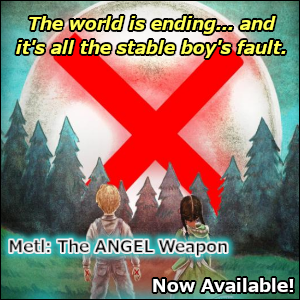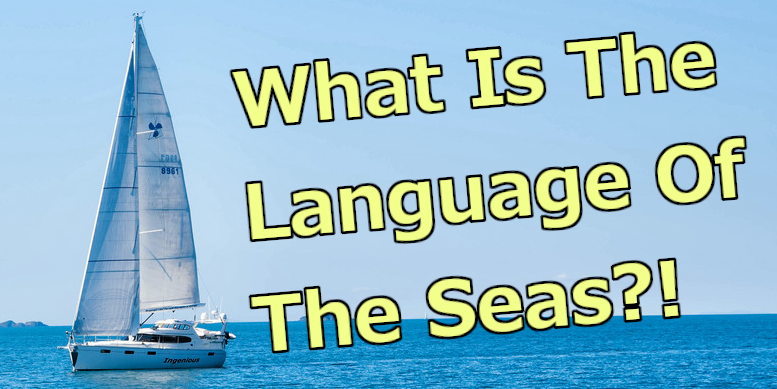How do you create a fictional language for your book?
Let’s go over the three things you need, then create our own fictional language together!
During the last stream, a subscriber requested that we go over how to create a fictional language.
You can watch the full video here to or scroll down for notes/highlights.
How to Create a Fictional Language
- Creating a fictional language for your story can be a lot of fun
- However, you don’t HAVE to create one if you don’t want to, it’s not a necessary part of telling a fantasy/sci-fi story
- However, if you do want one, the first thing you need to decide is what level of language you want
Level 1: Easy Human
– Basically just slightly different English
– Examples: Nadsat, Newspeak
Level 2: Medium Human
– Use things commonly found in human languages
– Conjugations, tenses, cases, genders, articles
– Writing system: Abjad, syllabary, abugida, alphabet
* Examples: Dothraki, Elvish
Level 3: Hard Human
– Uses things found in human languages but are rarer
– Tones, clicks, polysynthetic structure, politeness levels, different number systems
– Writing system: Pictographic/ideographic, logographic
* Examples: Na’vi (dual & trial/base 8/infixes/recent & soon tenses), Klingon (noun classes, 29 suffixes, synthetic verbs)
Level 4: Understandable Alien
– Uses sounds and understandable structure but not things found in human languages
– Ex: Two mouths for overlapping syllables, HTML language, no recursion, etc.
– Writing: 3-D writing, a long single line, symbols represent entire sentence, etc.
* Examples: Arrival (ink-based language that has different understanding of time), Devilese
Level 5: Unfathomable Alien
– Doesn’t use sounds, potential other forms of communication
– Communication through spores, skin-color changing, odors, dances, etc.
* Examples: Star Trek IV: The Voyage Home (alien communicates through whale song)
- Levels 1 and 4/5 are typically only used when the story is at partly/mostly about the language
- Level 2 and 3 are by far the most common, so we’ll concentrate on those
- There are three things you need to come up with to create a Level 2/3 language:
#1. Phonology
This is the sound of your language, what kinds of consonants, vowels, and syllables it has
- What do you want your language to sound like? Harsh like German/Russian? Melodic like Spanish/Italian? Nasal like French? Guttural like Hebrew? Tonal like Chinese? Staccato like Japanese?
- Take a look at the IPA (International Phonetic Alphabet) charts of those languages and use them as a base for what you want
English IPA Example
- Common consonants: b, p, t, d, k, g, m
- Common vowels: fAther, pIque, trUe, Exit, Okay
- Rarer consonants: th, r, w/v
- Rarer vowels: pencIl, bOOk, fIt, mAw, thE
- Restrictions: Can’t start words with “ng” and can’t end words with “h”
Sound Feelings
- Fricatives: s, z, sh, zh, f, v, th (gives a flowy/hissing sound)
- Plosives: p, b, t, d, k, g (gives a poppy/staccato sound)
- Velars/uvulars: k, g, ng, xh, R (gives a guttural/throaty sound)
- Nasals: m, n, ng, N (gives an airy/open sound)
- Vowels too! Front vs. central vs. back
- Whichever kind of sounds you use a lot in your language will influence how it sounds!
Note how different these three LotR languages sound from each other:
Sindarin:
Annon edhellen, edro hi ammen! Fennas nogothrim, lasto beth lammen!
(Elvish gate open now for us! Doorway of the Dwarf-folk listen to the word of my tongue!)
– Lots of “l” and “m” sounds make it feel flowy
Quenya:
Lá karita i hamil mára alasaila ná.
(Do what you deem wise!)
– Lots of “a” sounds make it sound airy/echoy
Black Speech
Ash nazg durbatulûk, ash nazg gimbatul, ash nazg thrakatulûk agh burzum-ishi krimpatul.
(One Ring to rule them all, One Ring to find them, One Ring to bring them all and in the darkness bind them.)
– Lots of fricatives to give that hissing sound
#2. Grammar
This is the logic of your language, what kind of syntax, conjugations, inflections it has
- How different do you want your language from English?
Common vs. Rare Syntax
- Subject-Object-Verb (“I books write”) Common: Japanese, Korean, Hindi
- Subject-Verb-Object (“I write books”) Common: English, French, Chinese
- Verb-Subject-Object (“Write I books”) Uncommon: Arabic, Hawaiian
- Verb-Object-Subject (“Write books I”) Uncommon: Fijian, Malagasy
- Object-Verb-Subject (“Books write I”) Rare: Hixkaryana
- Object-Subject-Verb (“Books I write”) Rare: Xavante
Word Interactions
- Does your language have prepositions? Post-positions? Cases?
- English: “I gave a present to the sailor” (“to” is a preposition)
- Japanese: “I sailor-to a present gave” (“to” is a postposition)
- German: “Ich gab dem Seemann ein Geschenk” (“dem” is the indirect object case of “the”)
- Do adjectives change when they modify nouns?
- Japanese: “i” vs “na” adjectives
- Do you have articles (“a/the”)? If so, how many?
- French: “le” vs. “la”
- German: der, die, das, dem, des, den
- Do you have genders? How many? Do they have to agree?
- French: “Il est Francais” vs “Elle est Francaise”
Analytic vs. Synthetic vs. Polysynthetic Language
- Highly analytic languages are like Chinese: words do not change very much
- Chinese: “Wo bu xiang qu.” (uses helping verbs)
- Analytic languages like English: the words change a little
- English: “I do not want to go.” (helping verbs/some changes)
- Synthetic languages are like Japanese: words change a lot
- Japanese: “Ikitakunai” (go+want+not) (no helping verbs, one verb changes a lot)change depending on usage)
- Polysynthetic languages are like Mohawk: single words are whole sentences
Other Questions to Ask
- Does your language have tenses? If so, what? How many?
- Present, past, future, continuous, perfect, recent, soon, completed, ongoing, etc.
- Do verbs have similar beginnings/endings? Do they change?
- French: “ir” vs. “er” vs. “re” verbs
- Japanese: all verbs end in “u”
- Does your language have honorifics? How many?
- French: “tu” vs. “vous.” Chinese: “ni” vs. “nin”
- Japanese: neut. vs. polite vs. humble vs. exalted vs. insult
- How about things changing based on time of day? Smells or tastes? Good vs. evil changes?
- Does your language have exceptions to the rules? It should!
#3. Vocabulary
These are the words of your language, and you’ll need hundreds or thousands of them
- The process of coming up with individual words is hard and takes a long time
- One of the best ways is to use languages you know and morph the words a bit
- Example: if you need a word for “hat” and you know in French it’s “chapeau” and in Japanese it’s “boshi” you could mix the two words together and create something like “bopo” or “shab”
- Focusing on fricatives: “bosp” or “shavb”
- Focusing on velars/uvulars: “bok” or “shaCH”
- Focusing on nasals: “bong” or “sham”
Universal Sound Meanings
- There are some sounds that have near universality across all human languages
- Example: “teeny weeny” sounds like “a/i” mean small (tiny, petite, chiisai), “large/enormous” sounds like “u/o” mean big (huge, gros, ookii)
- When you make your own words, aim for something that “feels” right
Unique Features/Phrases
- What are the rare features that your language has? Emotional particles like in Japanese? Dropping certain words like in Spanish? Words flowing together in liaison like French? Only conjugating verbs in third person like English?
- What are some things that are expressed differently/difficult to translate into/out of your language?
- English: I have never been to France vs.
- Japanese: The situation of went to France doesn’t exist (very different!)
- Japanese: Yoroshiku onegai shimasu vs.
- English: I ask this of you nicely (we don’t say this in English!)
Come up with some cool idioms/words/swear words for your language!
- High Valyrian: Valar morghulis (“all men must die”)
- Dothraki: Khaleesi (“queen”)
- Harry Potter: Wingardium leviosa, expecto patroum
After that, chat voted that we come up with a language for Nomadic people who live sailing on the ocean and who go diving on the ocean floor a lot.
Here’s the language we came up with:
Mamedidi “Breath of the Ocean”
#1. Phonology
- ONLY voiced consonants because they’re louder and can vibrate underwater
- Consonants: b, m, g, d, z, th, n, v, zh, w, r
- Vowels: a, o, u, i, e
- No consonant clusters, every consonant has to be followed by a vowel, so that they can easily speak far distances to other boats
- Use sign language (hands and legs) to convey emotions/honorifics, use their legs for sign language since they’re under water and it’s easier
- Because of this, they see the language spoken underwater as the “pure” form, since spoken above land it lacks the correct sign language
- As children, they get a shell as part of acquiring language, like a hermit crab, and they can only speak above water when holding onto the shell as a remanant of the sea
#2. Grammar
- What is the word order?
- Subject-Object-Verb
- Order of least to most important, dropping the unimportant things whenever possible to save on air underwater
- Does your language have post-positions?
- North/South/East/West post-positions instead of left/right/behind/etc.
- Does your language have tenses? If so, what are they?
- Aspect only: now/future vs. completed
- No complicated conjugations to save on air
- Does your language have honorifics?
- Honorifics are given with sign/leg language underwater
- Very complex and deep system of honorifics depending on who is speaking to who
- Neutral vs. family/friend vs. polite vs. humble vs. exalting vs. insulting vs. stranger vs. reunion
#3. Vocabulary
(Be sure to check out the video for the full vocabulary list we came up with!)
Sample sentence 1: “The water is cold at night.”
– Zhea’aira, maba zabibi.Sample sentence 2: “We fish octopuses for food. I do not like them.”
– Wume zhidi na sukutoro lazhi. Mathida zha mago.Sample sentence 2: “Yesterday I dove with my friend, and he drowned.”
– Za‘aira, wime ge madi, zhawe zamathu do.Idioms
– Tha’aira zhama sagu. (“The wind changes tomorrow”) Do not worry about it, things will get better.
– Zhama na vavadu zha. (“Do not fight for the wind”) Don’t fight over things that don’t matter.
– Wiwamurethu (“A school of fish going to mate”) A group of thirsty men lol
– Zhazhama (“A dangerous wind”) The bubbles that pop out when you fart underwater
– Methabe dea’aira mo bugu ra (“North is day’s illusion”) A disagreement in the face of uncertainty, since north is a certainty at night when the stars are out)
Be sure to check out the video for more discussion and examples!
If you want to join us and help write a story by trolling in chat, or share your own writing for feedback, then we’d love to have you join us on Twitch.
And you missed the stream, you can still watch them on the YouTube channel or watch the full stream reruns.
Hope to see you next time, friend! Featured image: Pakutaso
Featured image: Pakutaso
